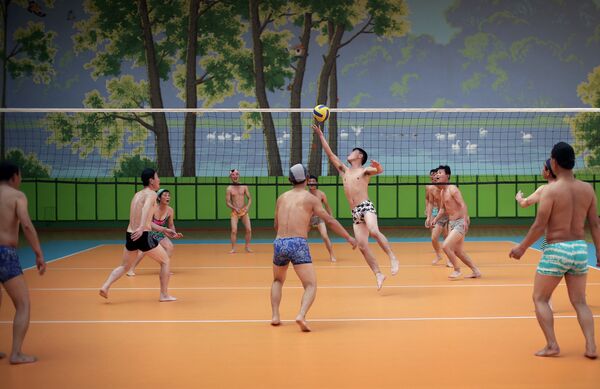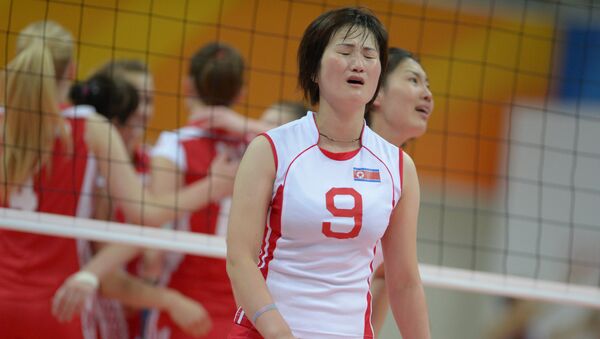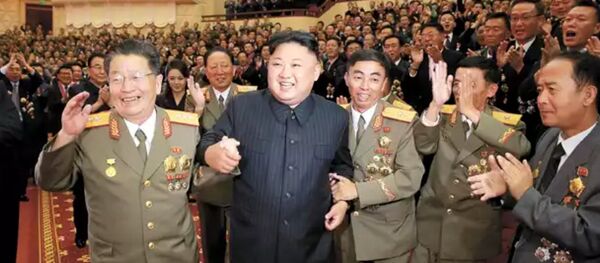Serbian coach Branislav Moro who helped train the North Korea’s women’s national volleyball team in 2015 and 2016 told Sputnik Srbija that he met Kim Jong Un personally, and that the North Korean leader turned out to be a very smart and friendly person.
"I can tell you that he’s a very affable and educated man. After all, he spent eight years studying in Switzerland and I think that he learned what is good and what is bad," Moro said, adding that the North Korean took a keen interest in his work and proved to be quite savvy on the subject.
He added that North Korea is a well-organized state that can take on any challenge, and that its people won’t starve even though sanctions are taking their toll on the country’s economy.
At the same time, Moro remarked, global media coverage of the North Korean affairs appears to be extremely biased and even detached from reality. As an example, he mentioned the reports concerning rumors about North Korean athletes being allegedly executed for poor a performance at international competitions.
"For example, I sit right next to one of those ‘killed’ athletes and I’m too ashamed to tell him that he’s supposed to be dead. I even used my cellphone to check on the Internet to confirm his identity. Basically, there’s very little truthful information out there," he said.
His concerns were echoed by journalist and Far Eastern affairs expert Borislav Korkodelovic who noted that media agencies often fail to offer a balanced account of the reforms enacted by Kim Jong Un.
"He focuses on developing nuclear weapons but he’s also launched economic reform, and the market is becoming more open. Last November I met with North Korean defectors who aren’t exactly fond of Kim Jong Un, and even they admitted that Pyongyang now has modern well-supplied shops. About 90 percent of the goods being sold at those outlets are being imported from China," Korkodelovic explained.

The journalist noted that while Pyongyang clearly fares better than the countryside, the fact remains that during the last year the North Korean GDP increased by 3.9 percent.
"They keep improving their quality of life, as far as the sanctions allow – that is a fact. It should be noted that while the harsh restrictive measures came into effect since 2006, one could argue that the Western sanctions were imposed back in 1945; people have just gotten used to them," Korkodelovic said.
He further noted that following the end of WWII Korea was divided just like Germany. However, it would be a mistake to try and devise a way to reunify the two Korean states based on Germany’s example due to a number of important differences, he argued.
Germany, Pavic claimed, has never witnessed the kind of militarization that took place on the Korean Peninsula, adding that East Germany was never isolated like North Korea.
"Korea is a unique case, not to mention the fact that China takes a dim view of the prospects of a powerful and united Korean state appearing on its doorstep… The unification is impossible as long as the current rhetoric is maintained and the parties involved continue to hold massive military drills," Pavic said.
The analyst pointed out that Pyongyang is extremely unlikely to abandon its nuclear program while such military drills are being held, effectively thwarting hopes of reaching a deal with North Korea like the one that was made between Iran and the P5+1 group.
All three experts also stated that even if a war breaks out on the Korean Peninsula, the first shot definitely won’t be fired by Pyongyang.


